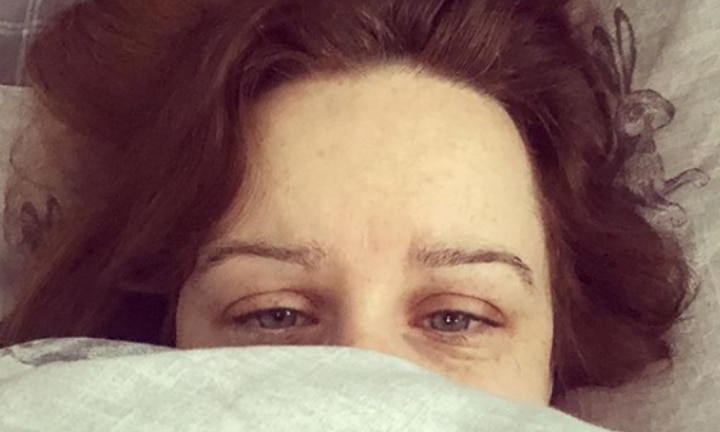Could it be perimenopause? The early symptoms women need to look out for
While it’s a phase that’s been going on for eons, it’s only really shot to prominence in more recent times. Dr Sam explains.

Lifestyle
Don't miss out on the headlines from Lifestyle. Followed categories will be added to My News.
20 odd years ago, you just didn’t hear the term perimenopause. But now, there’s not a day that goes by in my surgery that I don’t hear patients discuss it or come in asking for help.
The stage refers to the period of time where a woman transitions from regular cycles and their baseline hormonal state to the final menstrual period - ‘menopause’.
And while it’s a phase that’s been going on for eons, it’s only really shot to prominence and awareness in more recent times.
Maybe it’s because we are more open about talking about our health, or maybe as a society we are just now more open to understanding what women go through during various stages of their life.
Want to join the family? Sign up to our Kidspot newsletter for more stories like this.

What is perimenopause exactly?
It's caused by the body running out of eggs and the levels of Oestrogeon changing.
It can hit from as early as 29 but most likely around 40-45 and the timing might be genetic, so if you can find out when your Mum’s body started to change, it could give you an indication of what’s in store for you.
I can’t sugar coat it, the symptoms are crappy.
Periods start changing - they become irregular (lighter or heavier, longer or shorter, no longer following the calendar cycle). There can be hormone imbalances where oestrogen fluctuates from being too high to usually becoming lower and lower, leading to:
- breast pain
- irritability
- tiredness
- weight gain
- vaginal dryness
- aches and pains
- memory loss
- mood swings
You probably won’t have much of a sex drive and you might just feel a little “off”, a lot of the time.
RELATED: The $60 cream women swear is almost as good as Botox
The most common symptom
But the most common symptom experienced by about 80 percent of women going through this menopausal transition is hot flushes.
They can strike at any time but lots of women talk to me about it hitting at night – or night sweats. Sometimes as often as one an hour.
Perimenopause is also the stage where risk factors for major diseases start to rise. Heart attack and stroke risk factors increase, bone loss accelerates, central weight gain kicks in, plus cholesterol and sugar control becomes harder.
The perimenopause symptoms can last up to six years. Officially it ends one year after your last period but some of those physical sensations can continue into menopause and beyond.
And here is where I really feel for the ladies. Because you are going through all of this at the same time as everything else in your life has hit its maximum capacity and you are trying to juggle family, work, exercise and get some rest.
That’s a LOT!
Introducing our new podcast: Mum Club! Listen and subscribe wherever you get your podcasts so you never miss an episode.
RELATED: Why 40s is the unhappiest age for women
How to know if you're perimenopausal
The big question most ladies have for me is:
"How do I know I’m in menopause or the transition - the perimenopause?"
While we used to do blood tests to check hormones and for some patients we still might, now we are more likely to be driven by what you are telling us and how you are feeling, your age, the symptoms that are hitting you.
If you have to ask the question, you probably are.
I don’t mean to sound flippant, but women are generally pretty good at knowing their own bodies. So by the time they come to me, it’s because of numerous symptoms and a feeling that something ‘just isn’t right’.
The plus side is that there are plenty of treatments that have a great clinical (and anecdotal) success rate. Stay tuned for a future article on hormone therapy – it’s a biggie and needs its own chapter!
But my big advice is if you are having any of the symptoms don’t put off going to the doctor. Even if you think you aren’t “old enough” or “there’s just a lot going on”. I know most of my female patients put family and work first – but this is one instance where I beg you to put how you are feeling front and centre.
And not only talk to your doctor, but let your partner know. Let them know that jibe about your short temper probably isn’t appreciated at the moment, but a little understanding is. Get your own doona at night, do what you need to do for you, including booking the appointment that can help give you your life back.
More Coverage
Originally published as Could it be perimenopause? The early symptoms women need to look out for





